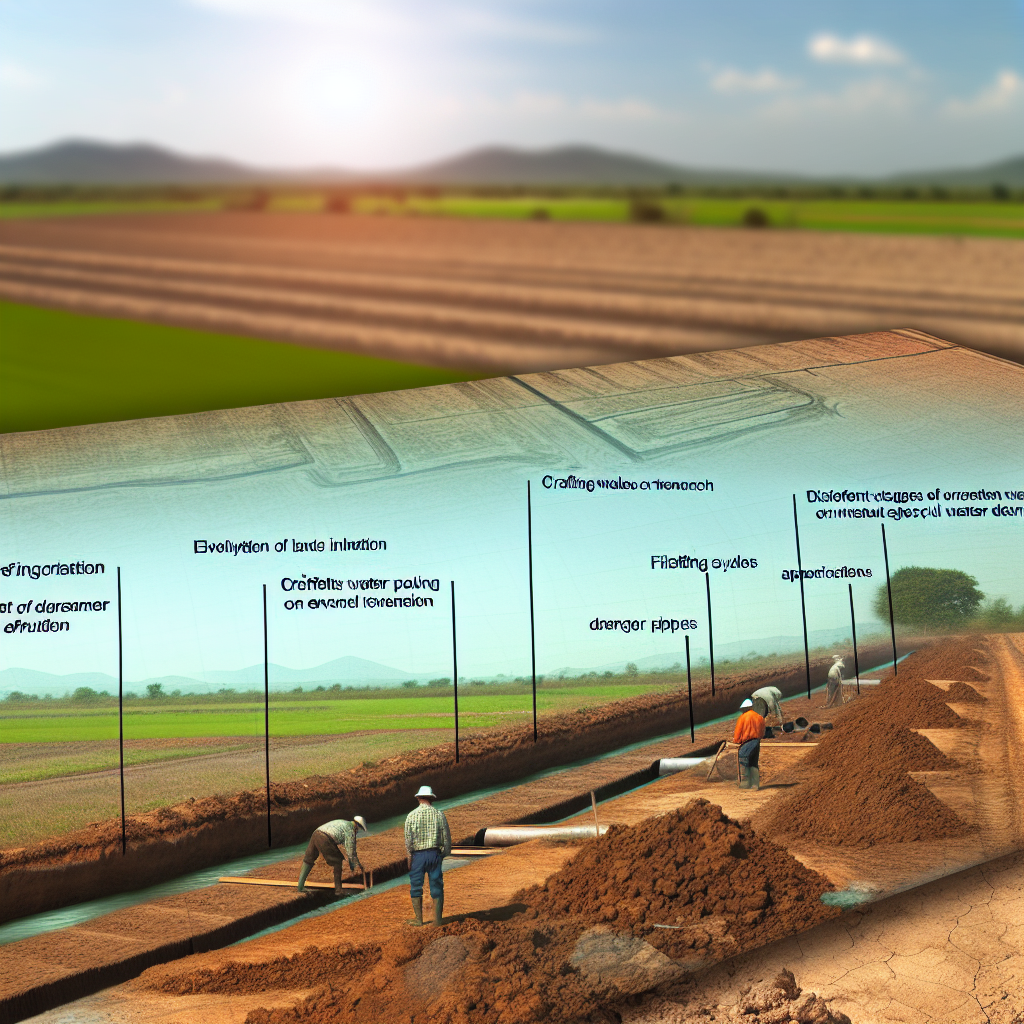
How to Ensure Proper Drainage When Grading Your Land
How to Ensure Proper Drainage When Grading Your Land
Proper drainage is crucial for any piece of land, whether you are building a new home, creating a garden, or simply grading your property. Without proper drainage, water can accumulate and cause damage to your land, foundation, and structures. In addition, stagnant water can attract insects and become a breeding ground for mold and other harmful organisms. To prevent these issues and ensure the longevity of your land, it is essential to have proper drainage in place.
Assess Your Land for Drainage Issues
Before you start grading your land, it is important to assess the current drainage of your property. This will give you an idea of any potential problem areas that need to be addressed during the grading process. Look for areas where water tends to pool or flow towards your home. These are signs of improper drainage and should be addressed before proceeding with grading.
Plan for Slope and Runoff
When grading your land, it is important to create a proper slope and runoff for water. The general rule of thumb is to create a slight slope of 1-2% away from your home or any structures. This will encourage water to flow away from your property instead of towards it. In addition, you should plan for where the runoff will go. You can install French drains, swales, or other drainage systems to redirect water to designated areas or to prevent erosion.
Use Quality Materials for Your Grading
To ensure proper drainage, it is important to use quality materials for your grading. This includes using a mix of topsoil and loam to create a solid base. You should also avoid using heavy clay soils as they tend to hold onto water and prevent proper drainage. In addition, make sure to compact the soil properly to prevent settling and sinking in the future.
Maintain Your Grading Regularly
Proper drainage is not a one-time fix. It is important to maintain your grading regularly to prevent any future drainage issues. This includes clearing any debris or blockages from your drainage systems, maintaining the slope of your land, and fixing any eroded areas. Regular maintenance will ensure that your land stays properly drained and in good condition for years to come. In conclusion, proper drainage is essential for the health and longevity of your land. By assessing your land, planning for slope and runoff, using quality materials, and maintaining your grading regularly, you can ensure proper drainage and prevent any potential issues in the future. Don't overlook the importance of proper drainage when grading your land – it will save you time, money, and hassle in the long run.
Serving Utah with Pride
Kirkman Construction & Excavating LLC is proud to serve the communities of Utah, including Ogden, Layton, Kaysville, Pleasant View, Eden, Morgan, West Haven, and Hooper. Our local expertise and understanding of the area’s unique requirements allow us to provide services that are tailored to meet the needs of our clients. We are dedicated to contributing to the growth and development of these communities through our high-quality construction and excavation services.

Ready to start your next construction project?
Contact Kirkman Construction today for a free consultation. Whether you need a general contractor, landscaping, demolition, or any of our other expert services, we’re here to help you bring your vision to life in Northern Utah. Call us or fill out our online form to get started!








